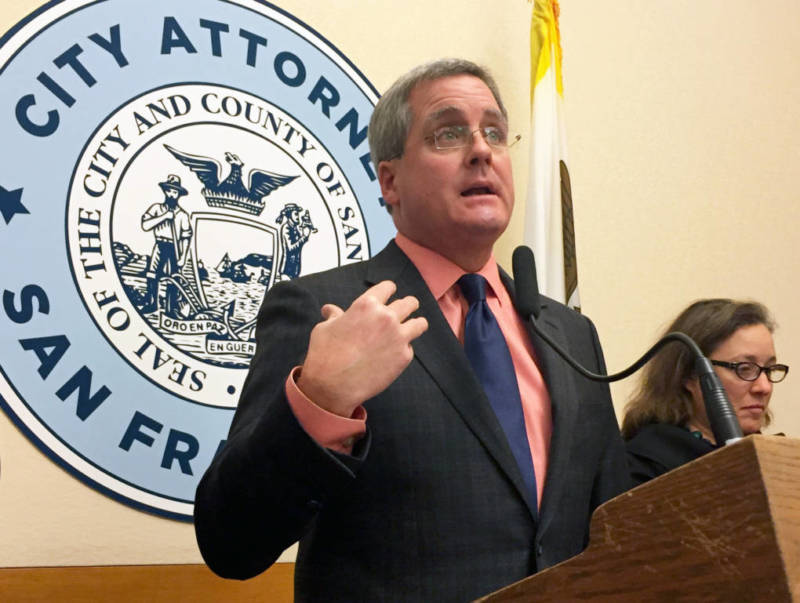Currently, only immigrants who depend on the government for cash assistance or are institutionalized for long-term care at government expense, may be considered a public charge.
The Trump administration says the new policy aims to protect taxpayer dollars and ensure that only self-sufficient immigrants are eligible for lawful permanent residence.
But San Francisco City Attorney Dennis Herrera argues that as more immigrants drop critical federal benefits out of fear or confusion, they’ll have to turn to other types of assistance paid for by local governments.
“It would dramatically shift the costs and tax burden from the federal government to local and state governments if the rule was to go into effect, dramatically increasing the cost for local taxpayers,” said Herrera. “So along with Santa Clara, we felt that it was necessary to file this lawsuit as quickly as possible to ensure that this law does not go into effect.”
With a foreign-born population of 39% for Santa Clara, and 36% for San Francisco, the counties have some of the highest proportion of immigrant residents in the state, according to the Public Policy Institute of California.
In the lawsuit, the counties argue that as immigrants and potentially their loved ones forego Medi-Cal and preventative care, the risks for communicable diseases and other public health threats could increase.
“The Trump Administration’s new rule is an unlawful, foolish attack on immigrant communities,” Santa Clara County Counsel James R. Williams said in a statement. “It will hurt all members of our communities by reducing access to critical health and safety-net services that create healthier communities for all of our residents.”
